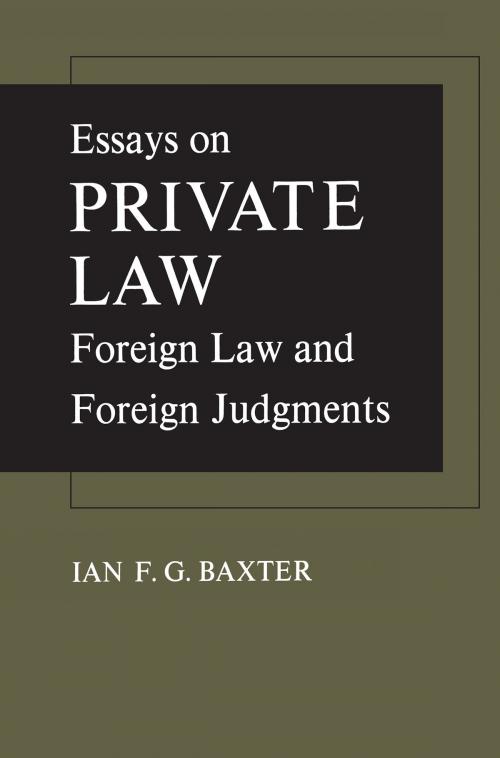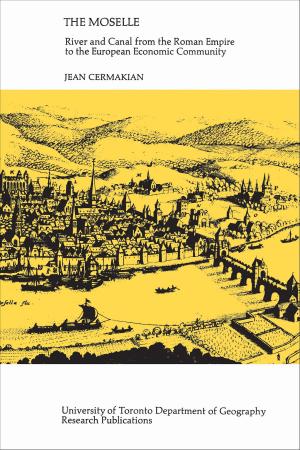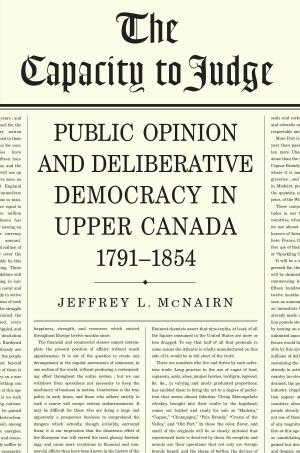Essays on Private Law
Foreign Law and Foreign Judgments
Nonfiction, Reference & Language, Law, Conflict of Laws, Court Rules| Author: | Ian Baxter | ISBN: | 9781442633360 |
| Publisher: | University of Toronto Press, Scholarly Publishing Division | Publication: | December 15, 1966 |
| Imprint: | Language: | English |
| Author: | Ian Baxter |
| ISBN: | 9781442633360 |
| Publisher: | University of Toronto Press, Scholarly Publishing Division |
| Publication: | December 15, 1966 |
| Imprint: | |
| Language: | English |
This book contains a series of essays on conflict laws, including jurisdiction of the courts, choice of law, renvoi, property, recognition of family status, and recognition of foreign corporations. It is not a text-book, but an analysis and criticism of existing principles with recommendations for reform and for a different approach to the subject. In general, an approach is advocated that will be simpler and less abstract and doctrinaire than at present, and better integrated with the ordinary laws of the forum. The recommendations made could be thought of as principles on which to build a reform of conflict of laws or a model code.
The first two chapters deal with jurisdiction and choice of law, two distinct topics, with different considerations of policy, which have not always been kept distinct by judges and text writers. The third chapter considers certain questions of legal interpretation, mainly in the construction of money obligations expressed in a foreign currency. This shows a working out of the problems of contract analysis and interpretation which are dealt with more generally in other chapters. Another chapter discusses property law, a branch of the law which has been influenced, historically, by the doctrine of situs, and the recognition of status in family law and in corporation law. The concluding chapter draws together the main results of the preceding discussion and states from basic principles, one of which is that there is a need “for greater unity between the conflict rules and the general law,” and for “allowing, where appropriate, the influence of legal systems other than that of the forum.” Professor Baxter’s discussion clearly shows that the complexity of current legal theory can lead to unjust rulings in the courts, and his case for greater simplification is argued compellingly.
This book contains a series of essays on conflict laws, including jurisdiction of the courts, choice of law, renvoi, property, recognition of family status, and recognition of foreign corporations. It is not a text-book, but an analysis and criticism of existing principles with recommendations for reform and for a different approach to the subject. In general, an approach is advocated that will be simpler and less abstract and doctrinaire than at present, and better integrated with the ordinary laws of the forum. The recommendations made could be thought of as principles on which to build a reform of conflict of laws or a model code.
The first two chapters deal with jurisdiction and choice of law, two distinct topics, with different considerations of policy, which have not always been kept distinct by judges and text writers. The third chapter considers certain questions of legal interpretation, mainly in the construction of money obligations expressed in a foreign currency. This shows a working out of the problems of contract analysis and interpretation which are dealt with more generally in other chapters. Another chapter discusses property law, a branch of the law which has been influenced, historically, by the doctrine of situs, and the recognition of status in family law and in corporation law. The concluding chapter draws together the main results of the preceding discussion and states from basic principles, one of which is that there is a need “for greater unity between the conflict rules and the general law,” and for “allowing, where appropriate, the influence of legal systems other than that of the forum.” Professor Baxter’s discussion clearly shows that the complexity of current legal theory can lead to unjust rulings in the courts, and his case for greater simplification is argued compellingly.















